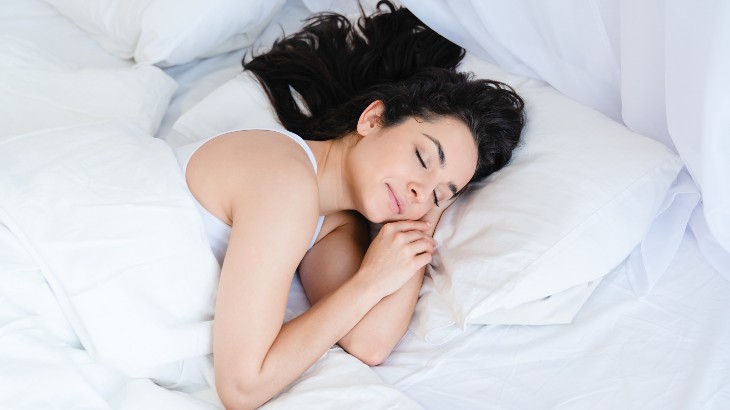
The Sleep Disorders Center
A good night's sleep doesn't have to be a dream
The Sleep Disorders Center at Rome Health offers a warm, relaxing atmosphere where you’ll feel comfortable enough to fall asleep, while quality test results are attained to diagnose and treat your sleep disorder. Testing is available for adults and children, ages 2 and older.
Hotel-like rooms have queen-sized memory foam beds, flat screen televisions, and a private bath with towels, shampoo, body soap and a hair dryer for your convenience. In the morning, a continental breakfast is served.
The Sleep Disorders Center at Rome Health is accredited by the American Academy of Sleep Medicine (AASM), which demonstrates the hospital's commitment to maintaining the highest standards of excellence.
Our polysomnographic technologists are registered by the Board of Registered Polysomnographic Technologists. This is the highest certification in the field for health professionals who clinically assess patients with sleep disorders.
What You Can Expect
The sleep study, known as a polysomnogram, is typically performed overnight. Daytime testing is available for shift workers. Parking is conveniently located off of East Oak Street adjacent to the Diagnostic Center entrance under the canopy.
Patients usually arrive two or three hours prior to their normal bedtime and are encouraged to maintain normal bedtime routines.
The study helps to pinpoint the cause of sleep problems and plan treatment. Sometimes, a second study is performed to initiate and/or assess effectiveness of the recommended course of therapy.
The test monitors brain, heart, muscle and respiratory activity while the patient sleeps in a comfortable bedroom. Sensors transmitting information to the high tech monitoring equipment are attached to the patient’s head, chest, abdomen and legs.
Patients report that it is not difficult to fall asleep, move freely about the room or use the private bathroom while wearing the sensors.
The sleep technologist continuously observes data on the monitoring equipment throughout the night from a separate room.
A tremendous amount of data is collected from the visit. Within a few days, the study is scored, interpreted by a physician who is a credentialed sleep specialist, and a final report is sent to your referring physician.
Sleep Disorder Signs
Nearly 70 million Americans suffer from chronic sleep problems. Sleep deprivation is associated with injuries, chronic diseases, mental illnesses, poor quality of life and lost work productivity.
A number of indicators may suggest a sleep disorder, including falling asleep while reading or watching TV, needing to repetitively use the snooze feature on your alarm clock in the morning or feeling the need for a nap in the middle of the day.
The most common sleep disorders are insomnia (trouble falling or staying asleep), sleep apnea (pauses in breathing during sleep), restless legs syndrome, and narcolepsy (extreme daytime sleepiness). Although sleep disorders can significantly affect your health, safety, and well-being, they can be treated.
Talk to your doctor if you have any of these signs of a sleep disorder:
- You consistently take more than 30 minutes each night to fall asleep
- You consistently awaken several times each night and then have trouble falling back to sleep, or you awaken too early in the morning
- You often feel sleepy during the day, you take frequent naps, or you fall asleep at inappropriate times during the day
- Your partner says that when you sleep, you snore loudly, snort, gasp, make choking sounds, or stop breathing for short periods
- You have creeping, tingling, or crawling feelings in your legs or arms that are relieved by moving or massaging them, especially in the evening and when trying to fall asleep
- Your partner notices that your legs or arms jerk often during sleep
- You have vivid, dreamlike experiences while falling asleep or dozing
- You have episodes of sudden muscle weakness when you are angry or fearful, or when you laugh
- You feel as though you cannot move when you first wake up
Keep in mind that children can have some of these same signs when they have a sleep disorder, but they often do not show signs of excessive daytime sleepiness. Instead, they may seem overactive and have difficulty focusing or doing their best in school.
Sleep Disorders Center
1500 N. James St. Rome, NY 13440

